brand
Excitements IN SHAREHOLDERS’ CAMP AS FIRSTBANK SHEDS NPL BURDEN
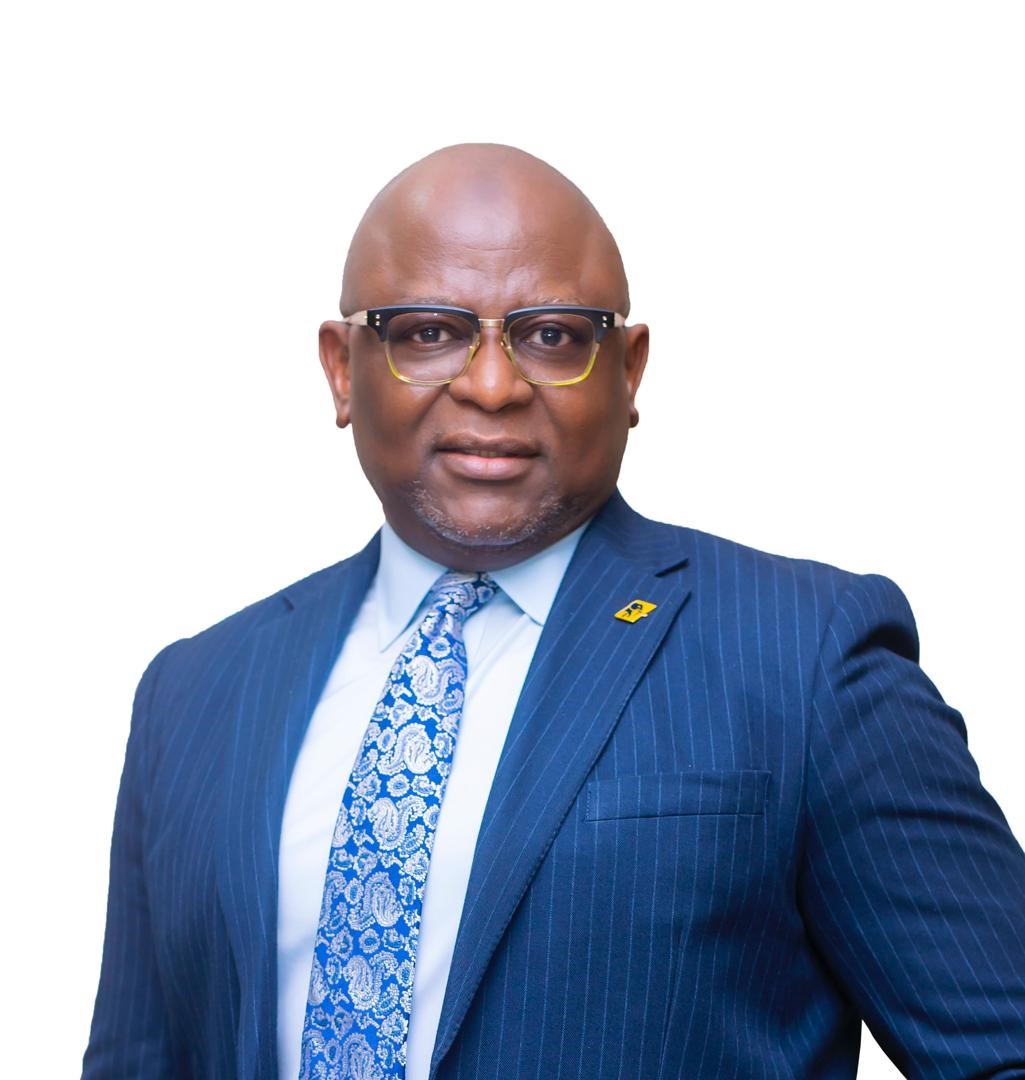
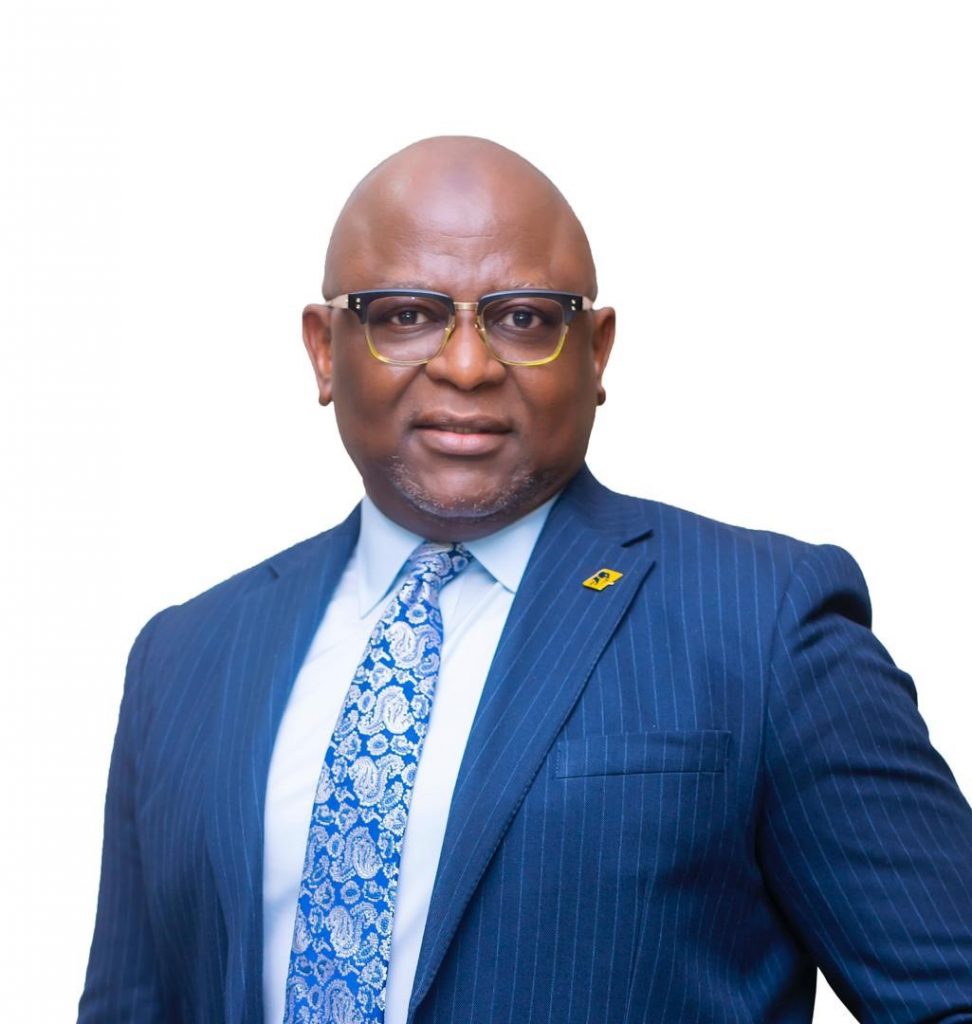 With a significant cut in its impairment charges (which translates into a clean loan book) in its 1Q, 2022 results, after it successfully brought down its non-performing loan to 6.1 per cent in 2021 full year performance, analysts say the repeat of the impressive performance of FirstBank in the first quarter did not only show the consistency in its rebound, but that it demonstrated the fact that the recovery is real. For the shareholders of the Nigerian banking behemoth, First Bank of Nigeria Limited, it is a season of celebration and a period to shower praises on the board and management of the bank for successfully working its way back into reckoning, after a long period of operational challenges mostly blamed on rising cases of non-performing loans.The shareholders, who joined other stakeholders of the bank and its parent company, FBN Holdings Plc., in appraising its first-quarter 2022 results made public last week, said it is a great relief that the organisation has put the issue of non-performing loans behind it.According to them, the outstanding results for the bank’s full-year 2021 is an appetiser to the first-quarter 2022 results and that the repeat of impressive results for the first quarter did not only show the consistency of its restructuring but that it demonstrated the fact that the recovery is real.SHAREHOLDERS’ ENDORSEMENTThe founder and pioneer National Coordinator, Independent Shareholders Association, Sunny Nwosu, in an interview with THISDAY, at the weekend, said the management of FirstBank deserves praise for working the bank back to profitability and clean loan book.He believes the ability of the FBNHoldings, the parent company, to significantly cut the exposure to non-performing loans to 6.1 percent showed that the bank has shut the door against future delinquent debtors, a development he said will consolidate the bank.Nwosu said many of the shareholders were pleasantly surprised first, by the performance in the 2021 full results, saying the first quarter 2022 results came as a confirmation of the readiness of the bank to take its leadership position in the nation’s banking industry.“Considering all the provisions they had made in the past two years and for them to have come out clean shows it is not a bad result and for them to have agreed to pay 35 kobo dividend to shareholders, it is encouraging because most shareholders did not know the company was going to pay anything, especially with all the challenges going on in the economy.“We are indeed excited that they have been able to bring down non-performing loans, which means they will have more money to do business with and I’m quite sure they will be more careful this time when it comes to giving out loans,” Nwosu stated.He maintained that FirstBank can still return to the leadership position in the Nigerian banking industry, saying the current leadership should keep an eye on the business and encourage the staff with a good incentive to compete in the industry.1Q 2022 RESULTSAnalysts said the bank has remained dazzling in virtually all its performance metrics, a development they attributed to the NPL improvements which restored investors’ confidence. And success with NPL means the quality of assets is bound to rise.An analysis of the bank performance gleaned from the group Q1, 2022 results showed that its exposure to bad loans has substantially reduced given the fact that the amount set aside as impairment charges has come down from N13.175 billion in the first quarter of 2021 to N8.75billion in 1Q 2022.In the period under review, First Bank of Nigeria Limited recorded gross earnings of N170.4 billion, up by 33 per cent as against N128.1billion in the previous year. The bank’s net interest income was put at N72.9 billion, a 42.1 per cent from N51.3 billion generated in the same period of 2021, while non-interest income was N58.8 billion, up by 21.7 per cent from the 2021 figure.Profit After Tax for the first quarter of 2022 was N31billion, whereas N16.3 billion was the figure declared for 1Q, 2021. The bank declared total assets of N8.8 trillion, a 3.5 per cent rise from N8.5 trillion in the preceding year.To show the bank was in a serious business of lending, its customers’ loans and advances (net) totaled N2.999 trillion, up by 5.8 per cent, year-to-date as of December 2021, which was put at N2.835 trillion, while customers’ deposits were N5.9 trillion, as against N5.6 trillion in the first quarter of 2021, a 5.4 per cent increase.BUILDING CONFIDENCE IN OPERATIONAnalysts believed the recent turnaround and improvement in the Non-performing loans of First Bank of Nigeria Limited (FirstBank) have been a major boost in the bank’s quest to reinforce its leadership in the financial services industry in Nigeria.For instance, it has been observed that the current leadership of its Chief Executive Officer, Dr Adesola Adeduntan has been instrumental in building stakeholders’ confidence and trust in the bank’s financial viability with analysts left to ponder and perhaps, understudy the pace of such feat has been achieved. They said answers to these have been provided by the bank’s consistent improvements in its Non-performing Loans (NPL) ratio and position.For instance, by June 2020, when improvements were noted in the bank’s NPL ratio, the NPL ratio stood at 8.8 per cent. By March 2021, this figure had impressively dwindled to 7.9 per cent, and going by the 2021 results, the figure only stood at 6.1 per cent.Non-performing loans, or ‘NPLs’, are bank loans that are subject to late repayment or are unlikely to be repaid by the borrower. The inability of borrowers to pay back their loans was aggravated during the financial crisis and the subsequent recessions.For a bank that was almost brought to its knees by the burden of non-performing loans, it came as a great relief to both the shareholders and the regulatory authorities that for the first time in a long while, FirstBank’s NPLs came down to 6.1 per cent, a significant progress for the bank when compared to other Tier 1 banks and the regulatory threshold of 5.0 per cent.Analysts also attributed the significant fall in the NPL rates from 40 in 2016 to 6.5 per cent in 2021, to a new culture of corporate governance currently in place in the group and which has successfully revamped the company’s risk management capabilities.According to the bank, the recent turnaround and improvement in the non-performing loans have been a major boost in FirstBank’s quest to improve profitability and reinforce its leadership in the financial services industry in Nigeria.Analysts said with the impressive results for its 2021 operations, the board and management of FBN have proven to the investing community that the company is ready to take its leadership role in the nation’s banking sector and that the years of locusts have been put behind the institution.MAINTAINING FAIRLY MANAGEABLE NPL RATIOFor a sector already under pressure as a result of a sluggish economy, a challenging operating environment, and increased competitive intensity, the year 2022 came with a lot of fears for the Nigerian banking industry.As economic realities dawned on Nigerians, especially in a pre-election year, many investors struggled to get decently priced loans in Nigerian banks, and their plight is not helped when a bank is risk-averse because it already has lots of bad loans on its books.It is interesting to note that amidst the huge pressure placed on Nigerian banks by the prevailing sluggish economy, what the management of FirstBank did was diversify its loan books and maintained a fairly manageable Non-Performing Loan (NPL) ratio.This is because the percentage of non-performing loans in Nigeria reflects the health of the banking system. A higher percentage of such loans shows that banks have difficulty collecting interest and principal on their credits. That may lead to less profits for the banks in Nigeria and, possibly, bank closures.FirstBank recorded the highest NPL ratio in four years with 24.7 per cent in 2018 which dropped to 9.9 per cent, 7.7 per cent, 7.2 per cent in the period of 2019, 2020, and 6.1 per cent in the 2021 full-year results.ADEDUNTAN: ‘WE ARE READY TO IMPROVE BOTTOM LINE PERFORMANCE’Chief Executive Officer of FirstBank Group, Dr. Adesola Adeduntan, who expressed the determination of the bank to aim higher said, “At FirstBank, we have historically been interwoven with the fabric of this nation with a full-service commercial banking offering catering to every segment of the economy.“We believe we are now in a good position to translate this unique revenue generating potential into improved bottom-line performance.“Our first-quarter results demonstrate that we have commenced our journey of Quantum Profitability Leap in earnest with profit before tax doubling to N34.1 billion as the Bank begins to reap the dividends of the successful restructuring of its balance sheet, revamped risk management, robust technology, and innovative service offerings.“Our gross earnings are also up 33.0 per cent YoY to N170.4bn and Net Interest Income up 42.1 per cent YoY to N72.9bn. Furthermore, our strengthened risk management capabilities equip us with the ability to mitigate any negative effect of headwinds that may materialise given current macroeconomic pressures.“Looking ahead, we will continue to maximise all opportunities presented by our large network, and support our customers with innovative value-adding solutions through these uncertain times while investing in strengthening our digital banking offerings to deliver a better customer experience.”
With a significant cut in its impairment charges (which translates into a clean loan book) in its 1Q, 2022 results, after it successfully brought down its non-performing loan to 6.1 per cent in 2021 full year performance, analysts say the repeat of the impressive performance of FirstBank in the first quarter did not only show the consistency in its rebound, but that it demonstrated the fact that the recovery is real. For the shareholders of the Nigerian banking behemoth, First Bank of Nigeria Limited, it is a season of celebration and a period to shower praises on the board and management of the bank for successfully working its way back into reckoning, after a long period of operational challenges mostly blamed on rising cases of non-performing loans.The shareholders, who joined other stakeholders of the bank and its parent company, FBN Holdings Plc., in appraising its first-quarter 2022 results made public last week, said it is a great relief that the organisation has put the issue of non-performing loans behind it.According to them, the outstanding results for the bank’s full-year 2021 is an appetiser to the first-quarter 2022 results and that the repeat of impressive results for the first quarter did not only show the consistency of its restructuring but that it demonstrated the fact that the recovery is real.SHAREHOLDERS’ ENDORSEMENTThe founder and pioneer National Coordinator, Independent Shareholders Association, Sunny Nwosu, in an interview with THISDAY, at the weekend, said the management of FirstBank deserves praise for working the bank back to profitability and clean loan book.He believes the ability of the FBNHoldings, the parent company, to significantly cut the exposure to non-performing loans to 6.1 percent showed that the bank has shut the door against future delinquent debtors, a development he said will consolidate the bank.Nwosu said many of the shareholders were pleasantly surprised first, by the performance in the 2021 full results, saying the first quarter 2022 results came as a confirmation of the readiness of the bank to take its leadership position in the nation’s banking industry.“Considering all the provisions they had made in the past two years and for them to have come out clean shows it is not a bad result and for them to have agreed to pay 35 kobo dividend to shareholders, it is encouraging because most shareholders did not know the company was going to pay anything, especially with all the challenges going on in the economy.“We are indeed excited that they have been able to bring down non-performing loans, which means they will have more money to do business with and I’m quite sure they will be more careful this time when it comes to giving out loans,” Nwosu stated.He maintained that FirstBank can still return to the leadership position in the Nigerian banking industry, saying the current leadership should keep an eye on the business and encourage the staff with a good incentive to compete in the industry.1Q 2022 RESULTSAnalysts said the bank has remained dazzling in virtually all its performance metrics, a development they attributed to the NPL improvements which restored investors’ confidence. And success with NPL means the quality of assets is bound to rise.An analysis of the bank performance gleaned from the group Q1, 2022 results showed that its exposure to bad loans has substantially reduced given the fact that the amount set aside as impairment charges has come down from N13.175 billion in the first quarter of 2021 to N8.75billion in 1Q 2022.In the period under review, First Bank of Nigeria Limited recorded gross earnings of N170.4 billion, up by 33 per cent as against N128.1billion in the previous year. The bank’s net interest income was put at N72.9 billion, a 42.1 per cent from N51.3 billion generated in the same period of 2021, while non-interest income was N58.8 billion, up by 21.7 per cent from the 2021 figure.Profit After Tax for the first quarter of 2022 was N31billion, whereas N16.3 billion was the figure declared for 1Q, 2021. The bank declared total assets of N8.8 trillion, a 3.5 per cent rise from N8.5 trillion in the preceding year.To show the bank was in a serious business of lending, its customers’ loans and advances (net) totaled N2.999 trillion, up by 5.8 per cent, year-to-date as of December 2021, which was put at N2.835 trillion, while customers’ deposits were N5.9 trillion, as against N5.6 trillion in the first quarter of 2021, a 5.4 per cent increase.BUILDING CONFIDENCE IN OPERATIONAnalysts believed the recent turnaround and improvement in the Non-performing loans of First Bank of Nigeria Limited (FirstBank) have been a major boost in the bank’s quest to reinforce its leadership in the financial services industry in Nigeria.For instance, it has been observed that the current leadership of its Chief Executive Officer, Dr Adesola Adeduntan has been instrumental in building stakeholders’ confidence and trust in the bank’s financial viability with analysts left to ponder and perhaps, understudy the pace of such feat has been achieved. They said answers to these have been provided by the bank’s consistent improvements in its Non-performing Loans (NPL) ratio and position.For instance, by June 2020, when improvements were noted in the bank’s NPL ratio, the NPL ratio stood at 8.8 per cent. By March 2021, this figure had impressively dwindled to 7.9 per cent, and going by the 2021 results, the figure only stood at 6.1 per cent.Non-performing loans, or ‘NPLs’, are bank loans that are subject to late repayment or are unlikely to be repaid by the borrower. The inability of borrowers to pay back their loans was aggravated during the financial crisis and the subsequent recessions.For a bank that was almost brought to its knees by the burden of non-performing loans, it came as a great relief to both the shareholders and the regulatory authorities that for the first time in a long while, FirstBank’s NPLs came down to 6.1 per cent, a significant progress for the bank when compared to other Tier 1 banks and the regulatory threshold of 5.0 per cent.Analysts also attributed the significant fall in the NPL rates from 40 in 2016 to 6.5 per cent in 2021, to a new culture of corporate governance currently in place in the group and which has successfully revamped the company’s risk management capabilities.According to the bank, the recent turnaround and improvement in the non-performing loans have been a major boost in FirstBank’s quest to improve profitability and reinforce its leadership in the financial services industry in Nigeria.Analysts said with the impressive results for its 2021 operations, the board and management of FBN have proven to the investing community that the company is ready to take its leadership role in the nation’s banking sector and that the years of locusts have been put behind the institution.MAINTAINING FAIRLY MANAGEABLE NPL RATIOFor a sector already under pressure as a result of a sluggish economy, a challenging operating environment, and increased competitive intensity, the year 2022 came with a lot of fears for the Nigerian banking industry.As economic realities dawned on Nigerians, especially in a pre-election year, many investors struggled to get decently priced loans in Nigerian banks, and their plight is not helped when a bank is risk-averse because it already has lots of bad loans on its books.It is interesting to note that amidst the huge pressure placed on Nigerian banks by the prevailing sluggish economy, what the management of FirstBank did was diversify its loan books and maintained a fairly manageable Non-Performing Loan (NPL) ratio.This is because the percentage of non-performing loans in Nigeria reflects the health of the banking system. A higher percentage of such loans shows that banks have difficulty collecting interest and principal on their credits. That may lead to less profits for the banks in Nigeria and, possibly, bank closures.FirstBank recorded the highest NPL ratio in four years with 24.7 per cent in 2018 which dropped to 9.9 per cent, 7.7 per cent, 7.2 per cent in the period of 2019, 2020, and 6.1 per cent in the 2021 full-year results.ADEDUNTAN: ‘WE ARE READY TO IMPROVE BOTTOM LINE PERFORMANCE’Chief Executive Officer of FirstBank Group, Dr. Adesola Adeduntan, who expressed the determination of the bank to aim higher said, “At FirstBank, we have historically been interwoven with the fabric of this nation with a full-service commercial banking offering catering to every segment of the economy.“We believe we are now in a good position to translate this unique revenue generating potential into improved bottom-line performance.“Our first-quarter results demonstrate that we have commenced our journey of Quantum Profitability Leap in earnest with profit before tax doubling to N34.1 billion as the Bank begins to reap the dividends of the successful restructuring of its balance sheet, revamped risk management, robust technology, and innovative service offerings.“Our gross earnings are also up 33.0 per cent YoY to N170.4bn and Net Interest Income up 42.1 per cent YoY to N72.9bn. Furthermore, our strengthened risk management capabilities equip us with the ability to mitigate any negative effect of headwinds that may materialise given current macroeconomic pressures.“Looking ahead, we will continue to maximise all opportunities presented by our large network, and support our customers with innovative value-adding solutions through these uncertain times while investing in strengthening our digital banking offerings to deliver a better customer experience.”
brand
GTCO Proudly Headlines the NPA Lagos International Polo Tournament as Main Sponsor— Championing Great Experiences and Heritage


Guaranty Trust Holding Company Plc (GTCO Plc) (NGX: GTCO; LSE: GTCO), one of Africa’s leading financial services groups, is proud to announce its continued support as the main sponsor of the NPA Lagos International Polo Tournament, one of Africa’s oldest and most prestigious sporting events. The 2026 edition will be held at the Lagos Polo Club, Ikoyi, from Tuesday, January 27 to Sunday, February 15, bringing together top local and international polo teams and spectators from across the continent and beyond.
The 2026 NPA Lagos International Polo Tournament will feature top‑tier teams competing for major prizes, including the Majekodunmi Cup, Independence Cup, Open Cup, Silver Cup and Low Cup, among others. Guests can expect a fusion of thrilling equestrian action, polo-inspired lifestyle showcase, and curated hospitality experiences. The event will also be livestreamed, allowing audiences online to share in the excitement and spectacle.
Commenting on GTCO’s role as main sponsor of the Lagos International Polo Tournament, Segun Agbaje, Group Chief Executive Officer, said: “This tournament, one of the oldest in Africa, celebrates not only the noble sport of polo but the values we hold dear as a brand: teamwork, discipline, fair play, and a commitment to excellence. Beyond the field, it showcases Nigeria and Africa to a global audience, reinforcing the continent’s place on the world stage. Our longstanding sponsorship of the NPA Lagos International Polo Tournament reflects our conviction that sport can amplify opportunity, foster connections, and deliver world-class experiences for all.”
The NPA Lagos International Polo Tournament has long been celebrated not only for its thrilling competition and equestrian excellence but also for its rich heritage and cultural resonance within Africa’s sporting tradition. GTCO’s sponsorship embodies the Group’s commitment to creating platforms that unite communities and drive social impact across diverse audiences.
brand
Fidelity Bank appoints Onwughalu as Chairman following completion of Chike-Obi’s tenure
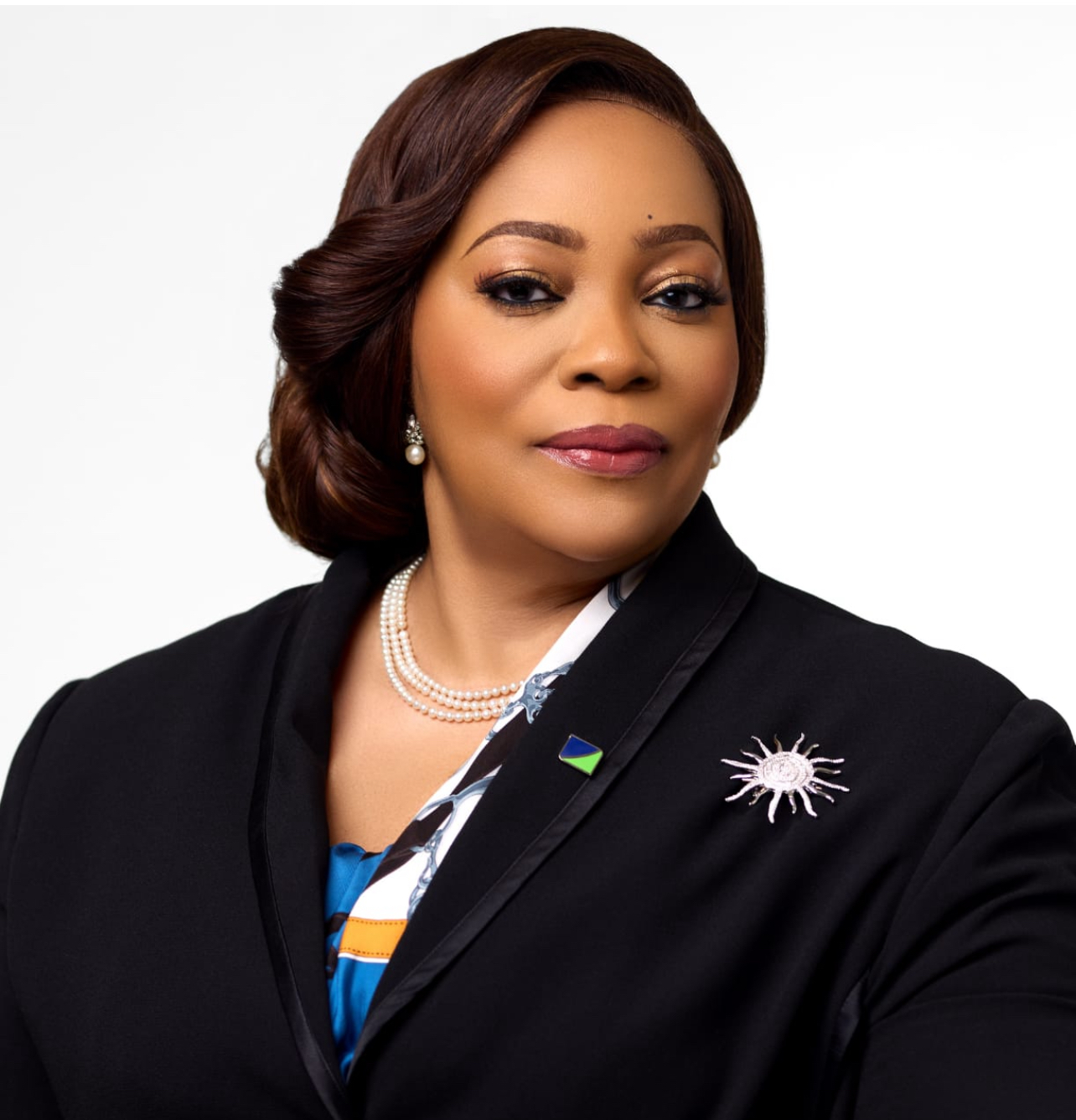
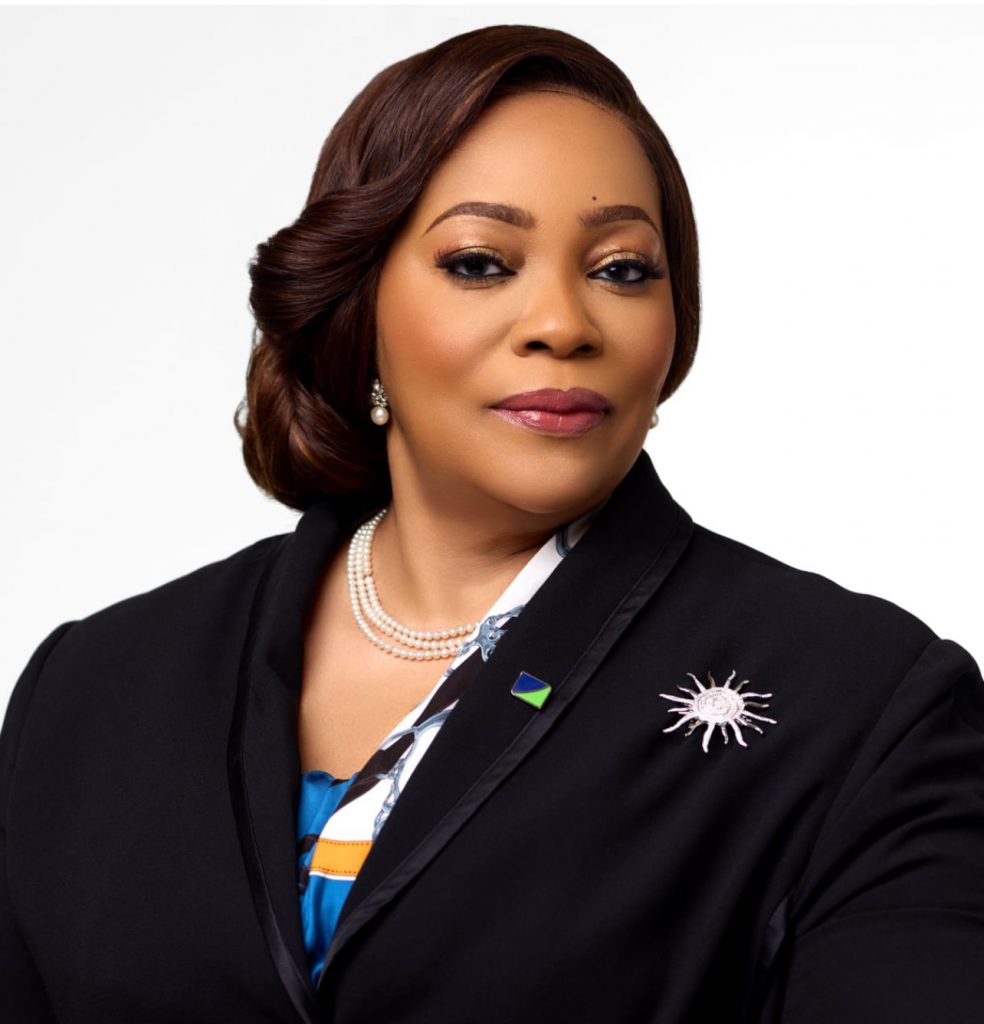 Tier one lender, Fidelity Bank Plc, has announced the completion of the tenure of Mr. Mustafa Chike-Obi as Chairman of its Board of Directors effective December 31, 2025, and the appointment of Mrs. Amaka Onwughalu as the new Chairman of the Board, effective January 1, 2026.
Tier one lender, Fidelity Bank Plc, has announced the completion of the tenure of Mr. Mustafa Chike-Obi as Chairman of its Board of Directors effective December 31, 2025, and the appointment of Mrs. Amaka Onwughalu as the new Chairman of the Board, effective January 1, 2026.
The board transitions are in alignment with the Bank’s policy and have been communicated to the Central Bank of Nigeria, the Nigerian Exchange Group, and other stakeholders.
Under Mr. Chike-Obi’s leadership, Fidelity Bank repaid its Eurobond, completed the first tranche of its public offer and rights issue that were oversubscribed by 237 percent and 137.73 percent respectively, expanded internationally to the United Kingdom, and received improved ratings from various agencies amongst a long list of achievements. His tenure also saw the Bank strengthen its capital position, record steady growth in customer deposits and total assets, deepen its digital banking capabilities, and enhance its corporate and investment banking proposition. The bank equally made notable progress in governance, risk management, and operational efficiency, all of which contributed to strengthened market confidence and the Bank’s sustained upward performance trajectory.
Reflecting on his tenure, Mr. Mustafa Chike-Obi said, “It has been a privilege to serve as Chairman of Fidelity Bank. The dedication of our Board, management, and staff has enabled us to reach significant milestones. I am confident that the Bank will continue to thrive and deliver value to all stakeholders.”
Mrs. Amaka Onwughalu’s appointment marks a new chapter for Fidelity Bank. She joined the Board in December 2020 and has chaired key committees. With over 30 years of banking experience, including executive roles at Mainstreet Bank Limited and Skye Bank Plc. She holds degrees in Economics, Corporate Governance, and Business Administration, and has attended executive programmes at global institutions. Mrs. Onwughalu is a Fellow of several professional bodies and has received awards for accountability and financial management
“I am honoured to lead the Board of Fidelity Bank at this exciting time. Our recent achievements have set a strong foundation for continued growth. I look forward to working with my colleagues to drive our strategy and deliver sustainable value,” commented Mrs. Onwughalu.
Ranked among the best banks in Nigeria, Fidelity Bank Plc is a full-fledged Commercial Deposit Money Bank serving over 9.1 million customers through digital banking channels, its 255 business offices in Nigeria and United Kingdom subsidiary, FidBank UK Limited.
The Bank is a recipient of multiple local and international Awards, including the 2024 Excellence in Digital Transformation & MSME Banking Award by BusinessDay Banks and Financial Institutions (BAFI) Awards; the 2024 Most Innovative Mobile Banking Application award for its Fidelity Mobile App by Global Business Outlook, and the 2024 Most Innovative Investment Banking Service Provider award by Global Brands Magazine. Additionally, the Bank was recognized as the Best Bank for SMEs in Nigeria by the Euromoney Awards for Excellence and as the Export Financing Bank of the Year by the BusinessDay Banks and Financial Institutions (BAFI) Awards.
brand
UBA Group Dominates 2025, Banker Awards, Emerges Africa’s Bank of the Year, For Third Time in Five Years
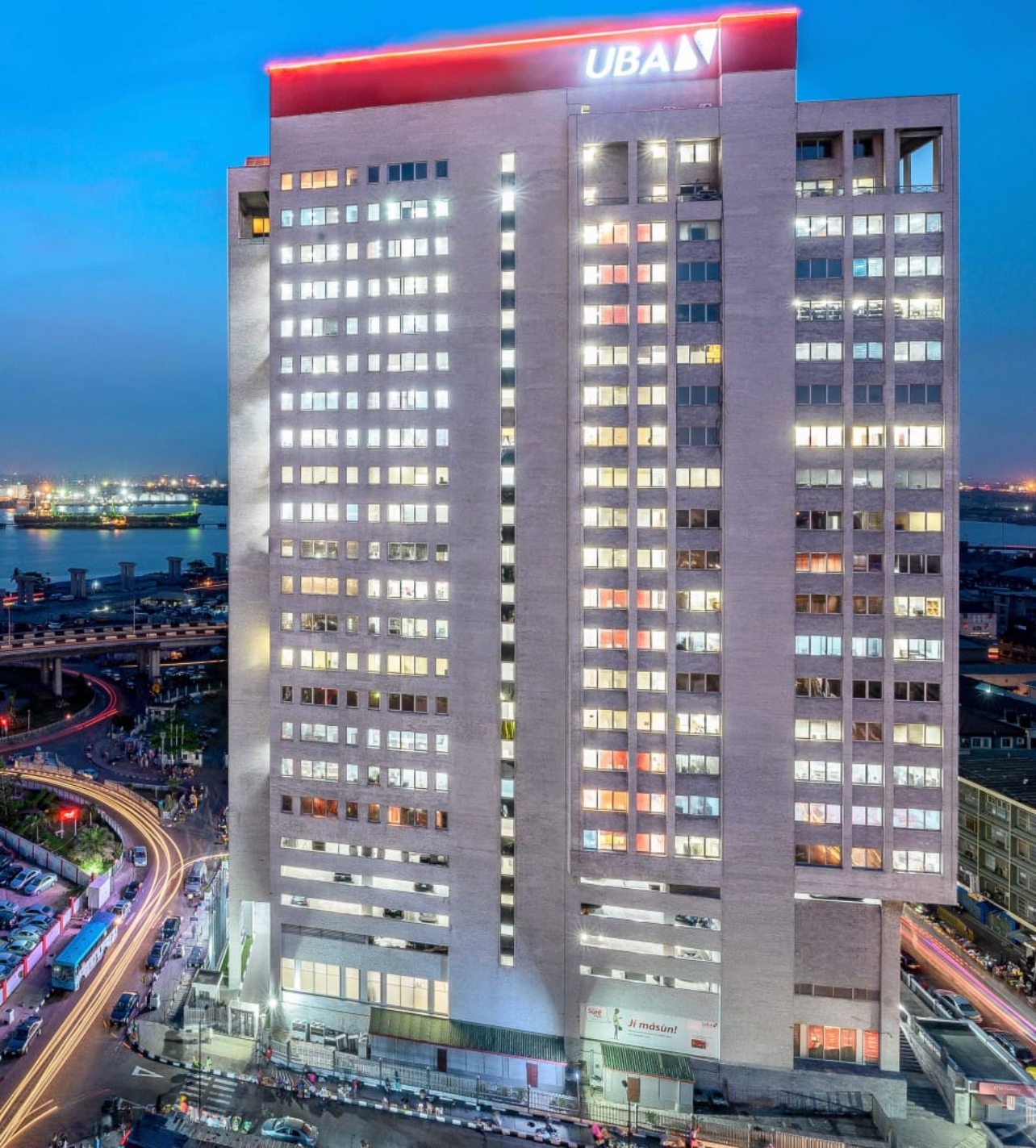
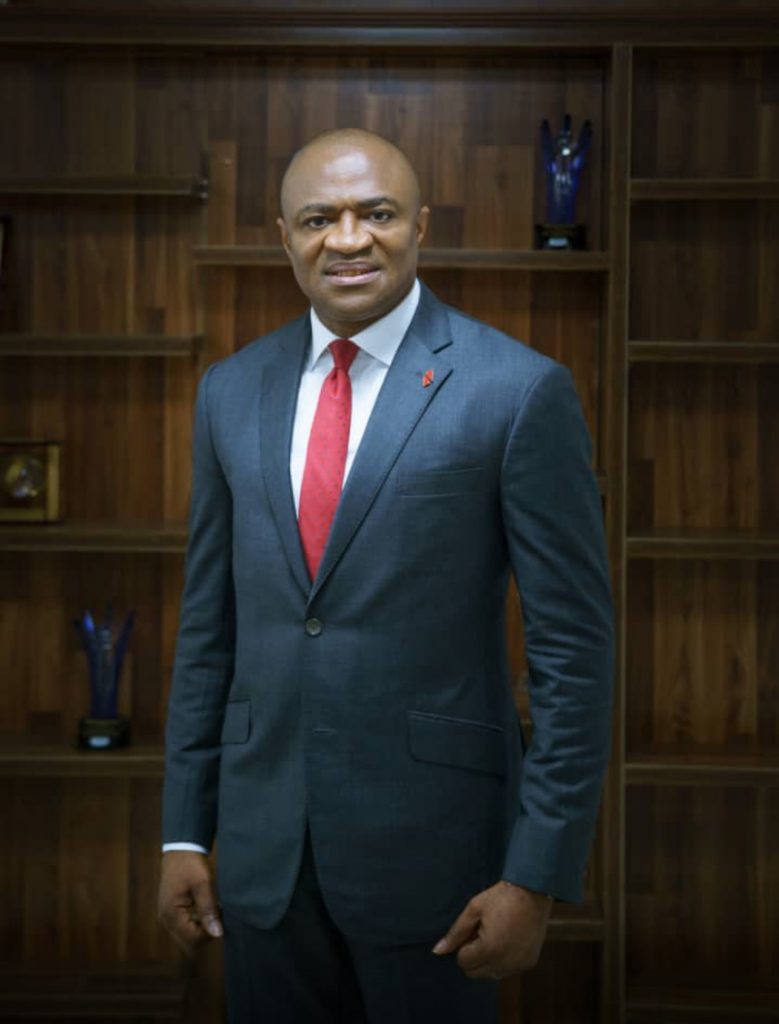
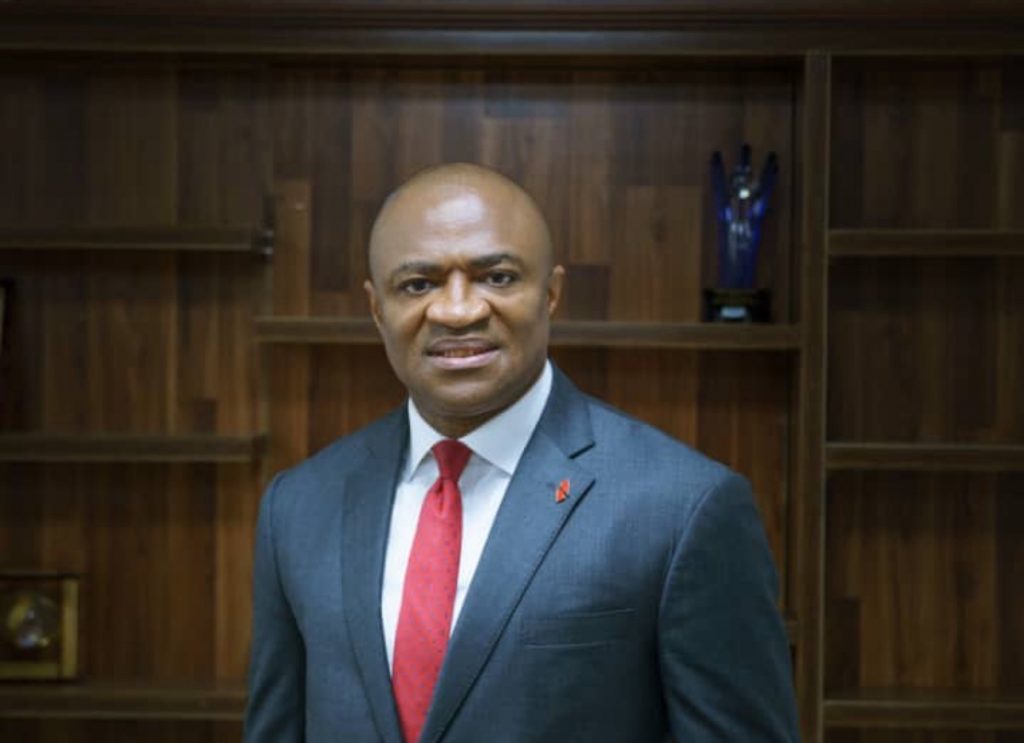 ….Wins Best Bank in Nine out of 20 African Subsidiaries
….Wins Best Bank in Nine out of 20 African Subsidiaries
Africa’s Global Bank, United Bank for Africa (UBA) Plc, has once again, reaffirmed its leadership as one of the continent’s most innovative and resilient financial institutions, as the bank has, for the third time in five years, been named the African Bank of the year 2025 by the Banker.com.
UBA also won the Best Bank of the Year awards in nine of its 20 African subsidiaries, bringing its total awards this year to ten as UBA Benin, UBA Chad, UBA Republic of Congo (Congo-Brazzaville), UBA Liberia, UBA Mali, UBA Mozambique, UBA Senegal, UBA Sierra Leone, and UBA Zambia, all came out tops as the best banks in their respective countries, underscoring the bank’s strength across West, Central and Southern Africa and highlighting the depth of its Pan-African franchise.
The Banker.com, a leading global finance news publication published by the Financial Times of London, organises the annual Bank of the Year Awards, and this year’s edition was held at a grand ceremony at the Peninsula, London, on Wednesday.
The Chief Executive Officer, UBA UK, Deji Adeyelure, received the awards on behalf of the bank, representing the Group Managing Director/CEO, Oliver Alawuba, and was accompanied by the bank’s Head Business Development, Mark Ifashe, and Head, Financial Institutions, Shilpam Jha.
The Banker’s awards are widely regarded as the most respected and rigorous in the global banking industry, celebrating institutions that demonstrate outstanding performance, innovation and strategic execution.
In its remarks on UBA’s winnings, the banker.com said, “For the third time in five years, UBA Group has won the coveted Bank of the Year award for Africa. UBA Group time after time punches above its weight against its larger African rivals. The bank this year also takes home nine separate country awards (one more than it gained for its last continental win in 2024), equivalent to around a quarter of the awards for the continent, and more than any of its continent-wide rivals.”
Continuing, it said, “Perhaps even more impressive is the fact that the awards were won across a broad geographic spread, going to lenders based in the Economic Community of West African States (Benin, Liberia, Senegal, Sierra Leone, and former member Mali), the Central African Economic and Monetary Community (Chad, Republic of Congo) and the Southern African Development Community (Mozambique, Zambia). Its award wins were particularly notable in the highly competitive categories for Benin and Mozambique.”
The Banker also highlighted UBA’s strong financial performance and commitment to future growth. In 2024, the Group recorded a 46.8 per cent increase in assets and a 6.1 per cent rise in pre-tax profits in local currency terms, while continuing to invest significantly in talent and technology. West Africa remains UBA’s heartland, with operating revenue and profit increasing by 87 per cent and 89 per cent respectively in H1 2025.
The bank’s digital and innovation leadership was equally recognised. During the year under review, and launched its Advance Top-Up buy-now-pay-later feature on the *919# USSD platform, expanding financial access for customers, while the bank’s chatbot Leo continued its strong growth trajectory, with transaction volumes rising by 29 per cent year-on-year in H1 2025. Notably, in August, Leo became the first African banking chatbot to enable cross-border payments via the Pan-African Payment and Settlement System (PAPSS).
UBA’s Group Managing Director/Chief Executive Officer, Oliver Alawuba, while reacting to the achievement, said the recognition affirms the bank’s long-term strategy and customer-first philosophy.
“This honour reflects the strength of our Pan-African network, the trust of our customers, and the dedication of our people. Winning Africa’s Bank of the Year for the third time in five years is not by chance; it is a testament to disciplined execution, innovation, and a deep understanding of the markets we serve,” Alawuba said.
“Our nine country awards across diverse regions of Africa show that UBA is not just growing, but growing with impact. We remain committed to driving financial inclusion, supporting economic development, and deploying technology that makes banking simpler, faster, and more accessible to Africans everywhere,” he added.
United Bank for Africa is one of the largest employers in the financial sector on the African continent, with 25,000 employees group-wide and serving over 45 million customers globally. Operating in twenty African countries, the United Kingdom, the United States of America, France and the United Arab Emirates, UBA provides retail, commercial and institutional banking services, leading financial inclusion and implementing cutting-edge technology.
-

 news5 years ago
news5 years agoUPDATE: #ENDSARS: CCTV footage of Lekki shootings intact – Says Sanwo – Olu
-

 lifestyle6 years ago
lifestyle6 years agoFormer Miss World: Mixed reactions trail Agbani Darego’s looks
-

 health5 years ago
health5 years agoChairman Agege LG, Ganiyu Egunjobi Receives Covid-19 Vaccines
-

 lifestyle4 years ago
lifestyle4 years agoObateru: Celebrating a Quintessential PR Man at 60
-

 health6 years ago
health6 years agoUPDATE : Nigeria Records 790 new cases of COVID-19
-

 health6 years ago
health6 years agoBREAKING: Nigeria confirms 663 new cases of COVID-19
-

 entertainment1 year ago
entertainment1 year agoAshny Set for Valentine Special and new Album ‘ Femme Fatale’
-

 news9 months ago
news9 months agoBREAKING: Tinubu swears in new NNPCL Board


